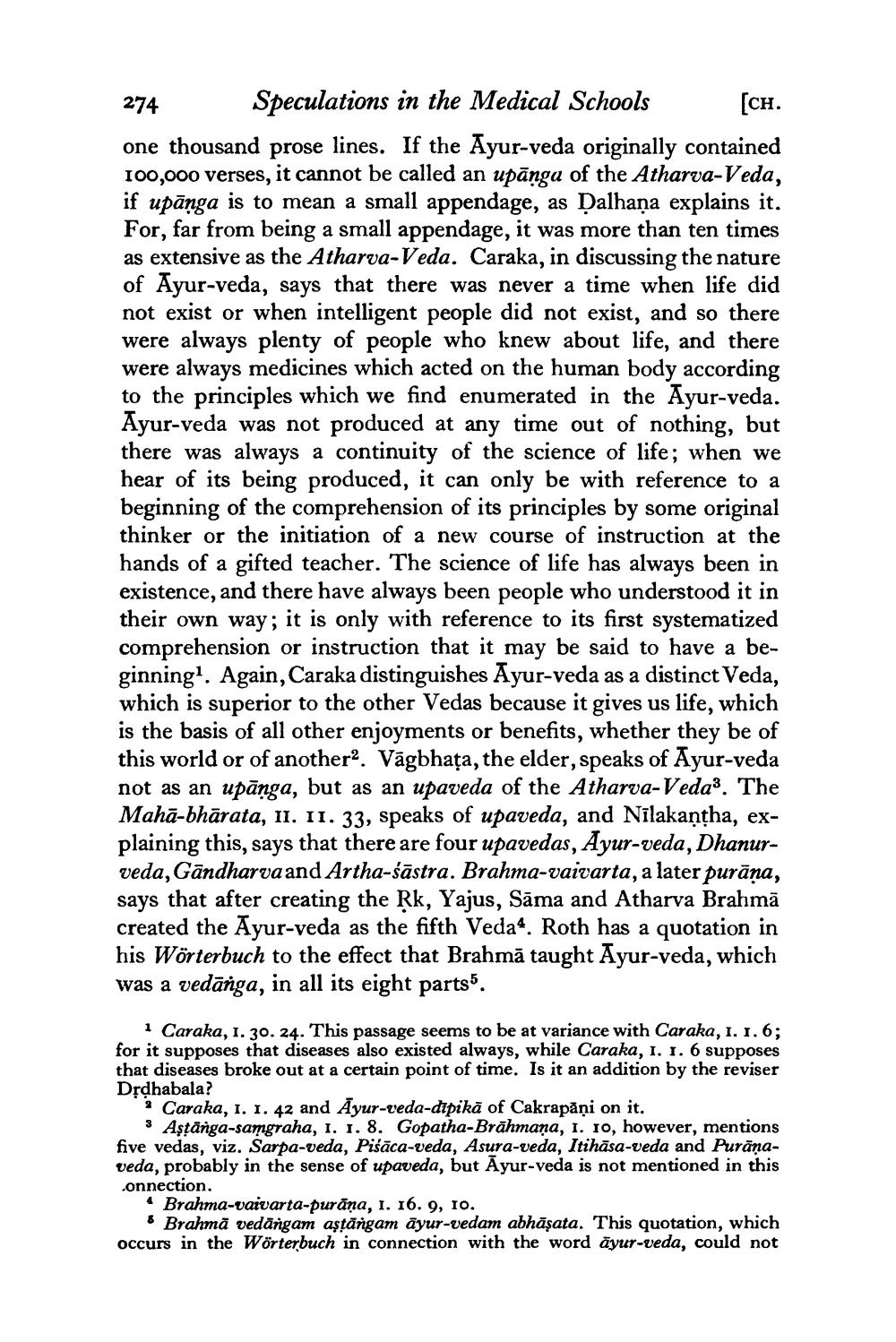________________
274 Speculations in the Medical Schools [CH. one thousand prose lines. If the Ayur-veda originally contained 100,000 verses, it cannot be called an upānga of the Atharva-Veda, if upānga is to mean a small appendage, as Dalhaņa explains it. For, far from being a small appendage, it was more than ten times as extensive as the Atharva-Veda. Caraka, in discussing the nature of Ayur-veda, says that there was never a time when life did not exist or when intelligent people did not exist, and so there were always plenty of people who knew about life, and there were always medicines which acted on the human body according to the principles which we find enumerated in the Ayur-veda. Ayur-veda was not produced at any time out of nothing, but there was always a continuity of the science of life; when we hear of its being produced, it can only be with reference to a beginning of the comprehension of its principles by some original thinker or the initiation of a new course of instruction at the hands of a gifted teacher. The science of life has always been in existence, and there have always been people who understood it in their own way; it is only with reference to its first systematized comprehension or instruction that it may be said to have a beginning". Again, Caraka distinguishes Ayur-veda as a distinct Veda, which is superior to the other Vedas because it gives us life, which is the basis of all other enjoyments or benefits, whether they be of this world or of another. Vägbhața, the elder, speaks of Ayur-veda not as an upānga, but as an upaveda of the Atharva-Veda3. The Mahā-bhārata, 11. 11. 33, speaks of upaveda, and Nīlakantha, explaining this, says that there are four upavedas, Ayur-veda, Dhanurveda, Gāndharvaand Artha-śāstra. Brahma-vaivarta, a later purāna, says that after creating the Rk, Yajus, Sāma and Atharva Brahma created the Ayur-veda as the fifth Veda4. Roth has a quotation in his Wörterbuch to the effect that Brahmā taught Ayur-veda, which was a vedānga, in all its eight parts.
1 Caraka, 1. 30. 24. This passage seems to be at variance with Caraka, 1. 1.6; for it supposes that diseases also existed always, while Caraka, 1. 1. 6 supposes that diseases broke out at a certain point of time. Is it an addition by the reviser Dşdhabala?
Caraka, 1. 1. 42 and Ayur-veda-dipikā of Cakrapāņi on it.
3 Aştānga-samgraha, I. 1. 8. Gopatha-Brāhmaṇa, 1. Io, however, mentions five vedas, viz. Sarpa-veda, Piśāca-veda, Asura-veda, Itihāsa-veda and Purānaveda, probably in the sense of upaveda, but Āyur-veda is not mentioned in this connection.
Brahma-vaivarta-purāna, 1. 16.9, 10.
* Brahmă vedängam aştāngam āyur-vedam abhāşata. This quotation, which occurs in the Wörterbuch in connection with the word āyur-veda, could not




